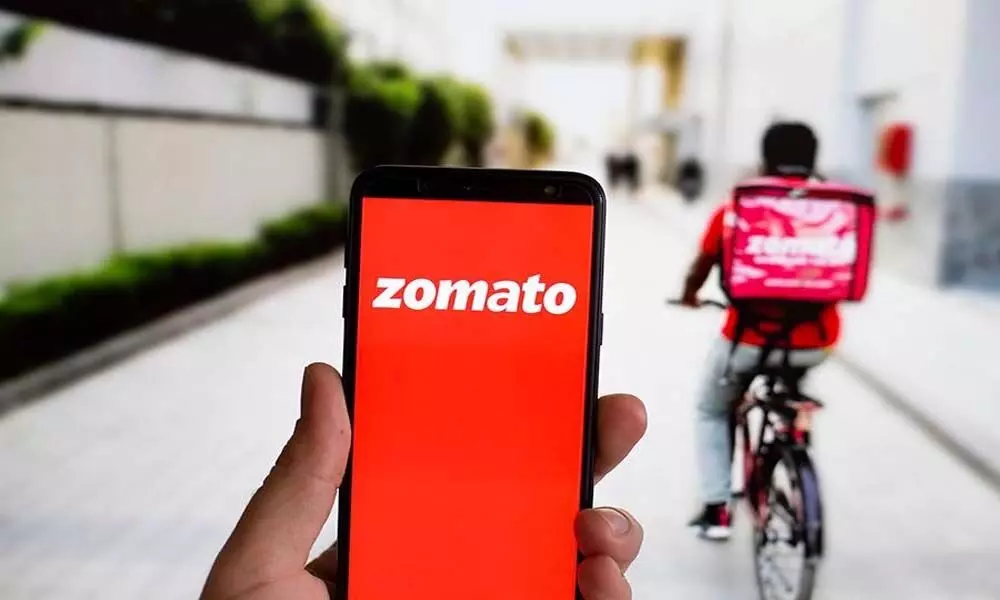Zomato: When can it turn around?
The company continues to bleed and one is not sure whether the management also knows what they need to do to turn around this business. This feeling is based on replies that they gave to investors during their interaction
image for illustrative purpose

The first issue from a unicorn to be listed, dealing in platform-based food delivery system is being launched in India. Zomato Limited is tapping the capital markets with its fresh issue of Rs 9,000 crore and an offer for sale of Rs 375 crore, in a price band of Rs 72-76. The issue opens on Wednesday (July 14) and closes on Friday (July 16). While the offering is unique in nature, it has also created some dubious firsts in India. This is the first issue where the presentation to media, brokers and analysts was made in millions of US Dollars even though the currency in which one has to apply is in INR or Indian Rupees. It appears that the company initially intended to list this share overseas in the first place, but on finding the huge appreciation in values in Indian stock markets decided to change the listing and offering venue. The presentation is always culled from the RHP. Tried searching for the US Dollars numbers in the document and failed. Wonder where the merchant bankers and the battery of lawyers were when this passed the muster or is anything permitted to Unicorns? The regulator needs to take a strict call on this event as with a number of such issues lined up, this could be made the new norm and be troublesome for Indian investors. Imagine having presentations in Chinese RMB, Japanese Yen, German Mark and so forth going forward.
Coming to the issue itself, the company is a loss-making company and revenues nothing great to talk about. The company reported revenues of Rs1,993 crore, which were lower than the previous year's Rs2,604 cr. Of the total revenue 75 per cent comes from the food delivery business and the balance from the supplies of ingredients Zomato does to restaurants. To keep itself relevant, the company has acquired a small stake in Grofers and is exploring the groceries business going forward as well. Covid-19 was a god sent opportunity for the company to redeem itself and turn around, but it has failed to do so. The first set of people who were allowed to continue to deliver till late hours were the food delivery platforms as takeaways from restaurant were allowed while dining in was not. The company continues to bleed and one is not sure whether the management also knows what they need to do to turn around this business. This feeling is based on replies that they gave to investors during their interaction. With cut throat competition, the urge to go back to dining out, and the feeling that delivery platforms overcharge on the restaurant's menu and also take delivery charges while restaurants offer free delivery, could continue to hurt this business going forward. If on the other hand these platforms resort to discounting and deep discounting which they have already been accused of, losses could widen. In any case this IPO would give them Rs9,000 cr to burn and this could help them last anything from 3-4 years.
The company has reduced its losses for the year ended March 2021 because of major reduction on two major costs. Total loss was Rs816 cr against Rs2,385 cr. This reduction was on two broad heads. The first was Advertisement and Sales support which reduced from Rs 1,338cr to Rs 527 cr and the second was on account of outsourced support cost which reduced from Rs 2,093 cr to Rs 590 cr. The saving on these two counts was a massive Rs 2,313 cr. One final point against the IPO is the fact that in many cities, local restaurants have got together and created their own app to ensure online delivery to eliminate the need for platforms like Zomato and serve the customer better. It needs to be noted that Zomato has been demanding continuously increasing commissions from restaurant partners which is a sore point between the two.
As far as subscription to Zomato is concerned, investors need to decide their investment horizon. Grey market premiums have reduced from the initial premium. This is because the leveraged HNI maths indicates that he would make money even at the current premium. This has put substantial pressure on Zomato premium. Considering the fact that the Retail portion which is 10 per cent of the issue size is likely to get subscribed between 4-5 times, one needs to take a call on whether it is only for listing gains or for the longer term. If it is for listing, there may be some pop on listing day. If it is for the longer term, avoid application now and wait for the share to list before taking a call. Things could be cheaper post a couple of days/week after listing.
(The author is the founder of
Kejriwal Research and Investment Services, an advisory firm)

